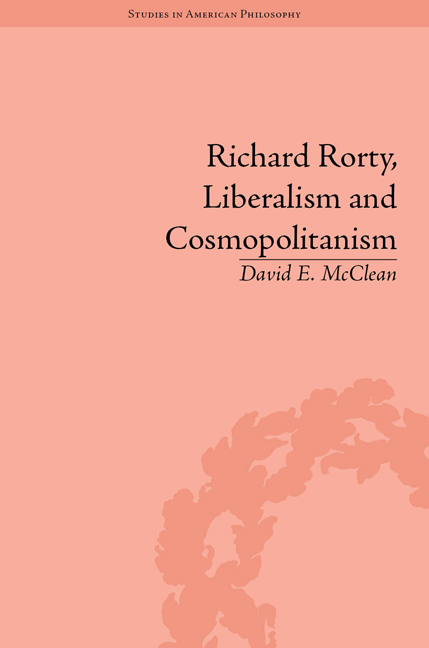Book contents
- Frontmatter
- CONTENTS
- Dedication
- Key to Works by Rorty
- Preface: Rorty's ‘Violence of Direction’
- 1 From Pragmatism to Rortyism
- 2 Alternative Utopias
- 3 Why Rorty Matters
- 4 Rorty on Religion, Race, Culture and Politics
- 5 Rorty and Cosmopolitanism
- Epilogue: Looking Forward to the Year 2096 with Cosmopolitan Hope
- Works Cited
- Notes
- Index
2 - Alternative Utopias
- Frontmatter
- CONTENTS
- Dedication
- Key to Works by Rorty
- Preface: Rorty's ‘Violence of Direction’
- 1 From Pragmatism to Rortyism
- 2 Alternative Utopias
- 3 Why Rorty Matters
- 4 Rorty on Religion, Race, Culture and Politics
- 5 Rorty and Cosmopolitanism
- Epilogue: Looking Forward to the Year 2096 with Cosmopolitan Hope
- Works Cited
- Notes
- Index
Summary
Does it make sense to speak of utopias? And if so, does Rorty's version of utopia strike us as an ideal that might be of use as we seek to build a more just and peaceful society and world? Is it possible to come to see ‘strange people’ as ‘fellow sufferers’ without coming to terms with the reasons that we often now fail to do so – i.e., because we often perceive that strangeness as a threat, and do not consider their capacity to suffer as one that trumps their capacity to contend against us in cultural and power politics and other contests for recognition and resources? Does the same ‘imaginative ability’ to build a more equitable society conflict with something fundamental to our psychologies – perhaps something primal – with which we must come to terms as we seek to increase justice and continue to lay the foundations for a truly cosmopolitan world community?
Rorty and Fukuyama on Liberalism
In 1989, Francis Fukuyama wrote an interesting and much-discussed and debated article in the National Interest. The article was titled ‘The End of History?’. Fukuyama's main thesis was that Western liberalism would not be superseded as a political formation, since it speaks to and best balances the needs of individual and communal values and aspirations.
- Type
- Chapter
- Information
- Richard Rorty, Liberalism and Cosmopolitanism , pp. 67 - 90Publisher: Pickering & ChattoFirst published in: 2014

